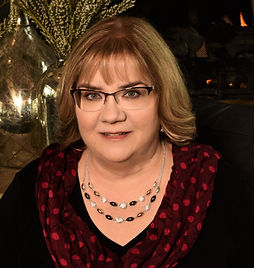
Five of us sat at the restaurant lunch table that day-- my parents, my sister, her boyfriend, and me. As we waited for our food, the laughter began as we told stories of things that happened long ago. The time when mom had to call dad to come home from work because my two-year old self had locked her out of the house. The time dad bowled a perfect 300 game. Our crazy uncle who wore a red satin jacket to one of our weddings-- we couldn't remember which.
I never realized how precious those stories would become, especially as my parents age. When my grandparents were still alive, I popped in frequently one summer and sat with them and recorded their stories. When grandpa's mother used to take him and his sister to the movies and they'd bring their own dinner and wait for the master of ceremonies to auction off a chicken before the movie began. The day Grandma and Grandpa met-- she was wearing a blue polka dot dress. Or was it yellow? The time they borrowed money from the furniture salesman himself so they could furnish their first home.

Stories. Your family has them too. And by sharing them with each other, we keep our family history alive. Telling our stories also allows us to share a bit of ourselves as well. It's one of the ways we get to know one other. By sharing our past, we help our friends know us in the present.
Several years ago, I met a man who was overbearing, grouchy, and controlling. No matter what I did, it was wrong. But since we kept getting thrown together in various situations, eventually he opened up about his life. That's when I discovered his mother had abandoned him when he was six years old. That total rejection of someone who was supposed to love him, especially at such a young age, shaped who he became. A six-year old has no control over his life, and this man's mother abused the trust he had placed in her. He learned he couldn't count on anyone, and that he needed to control things so he wouldn't get hurt again. Once I understood his story, my attitude changed. We were never best friends, but I saw him differently. I made it my mission to get him to laugh. I achieved it a few times, and it was a joy to see his face light up.
When I'm creating a new novel (story), I dream up my characters' lives. What's his favorite color? What's her life's goal? What are his unlikeable characteristics and why does he do those things? What's her opinion on gun control, abortion, politics, or alcohol and why does she believe that? Does he love his parents or shun them? What are the things he regrets? What are the things she's most proud of? All of this is so I can understand these characters' stories. Their stories make up the larger story I'm writing.

In the same way, the life stories you tell make up the larger story of you. Your family. And when you and I share our lives with each other, we form connections that may last a lifetime.
And in our lifetimes, hopefully we come to know Jesus. But how? Through His stories, written in His book. The Bible is full of His story and the stories of people God used to spread His word. Jesus Himself used stories, or parables, to explain how we are to live. Many times Jesus ended His parables with, "He who has ears to hear, let him hear." Indeed, if we are not listening to Jesus, how will we ever know Him? How can His words change us if we refuse to listen?
That same concept is true in our human interactions. If we don't hear others' stories, how will we truly know them? If I had not listened to that overbearing man, he would have remained just a grouchy guy I tried to avoid. Think about the difficult people in your life. Our natural reaction is to avoid them at all cost. But instead, maybe we can try to get them to open up about themselves--share their stories--so we can begin to understand. After all, when we develop compassion for someone, it's impossible to think of them the way we used to. They may never change. But we will.
So . . . what's your story?
Until next time,
Toni

.jpg)


Comments